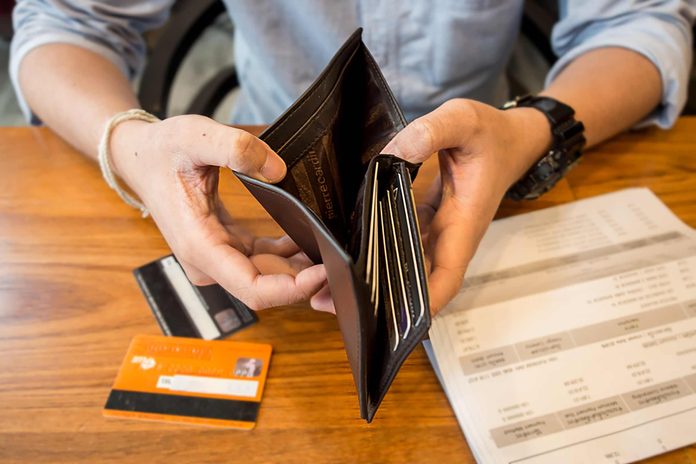
Debt stress isn’t good for your mental or physical health
Debt is one of the few stressors in life that doesn’t go away, according to Kelly McGonigal, a health psychologist at Stanford University. “What’s dangerous about debt is how pervasive and chronic it is. Most things in life that stress us out—a car accident, a divorce, a death in the family—happen, and then they’re over. Our bodies are designed to respond to these ‘emergencies’ and bounce back, whereas owing money can become completely inescapable.” Studies have shown that people who have mortgages generally require more health care. “Debt is just bad in general for our health: the amount we worry about it, but also the feeling we have that we can do nothing about it,” says McGonigal. But key emotional, psychological and behavioral studies about our financial decisions show there are healthier ways to manage and spend our money, which ultimately reduce the stress we feel. Here are some suggestions. Don’t miss the 13 things debt collectors won’t tell you.

Give money the right value in your life
David Krueger, a financial coach and former psychiatrist in Houston, Texas, says we all use money to “say” things about us. “We give it meaning in our lives, and use it every day to tell stories [such as how it] communicates freedom, embodies power, is proof of worth or is alicence for opportunity.” Identify your surface relationship with money, and then dig a little deeper to examine what other values you attribute to money. Ask yourself questions such as: Why are expensive brand names important to my image? Why is having more money so important that it keeps me up at night? Carefully consider your answers (writing them down is useful). This will help you to create the right state of mind about money, which is the first step toward gaining control over how you use it, says Krueger. “When you’ve got the right state of mind, then you can develop a strategy to fix the problem.”

Recognize credit creates a false sense of freedom
“One of the relatively recent research findings is that people who are stressed out go into yet more debt in order to feel powerful,” says McGonigal. So even though you’ve maxed out your credit cards, for example, you feel a sense of liberation when you increase your credit limit or get a new card. It’s a matter of short-term versus long-term perception. “It’s true that you’re taking on more debt, but you also feel like you have more resources available to you, and that’s a relief to a lot of people,” says McGonigal. Be aware of this short-term illusion, and consider the long-term cost when contemplating a credit card limit increase, acquiring a new card, and even when making apurchase on credit.

Build your “self-control muscle”
Roy Baumeister, a social psychologist at Florida State University, studied mental discipline recently by conducting experiments and showed we have a finite store of mental energy for exerting self-control. In other words, your ability to control the urge to spend (willpower over instant gratification) becomes fatigued with use. But you can give it a boost. “Keep track of all your spending activities daily by writing them down and thinking about the final numbers,” says McGonigal. “Doing so is effectively ‘exercising’ and therefore strengthening your self-control muscle.” These are the 56 effortless ways to save money you need in your life right now.

Don’t shop when you feel down
A study in the Journal of Experimental Social Psychology showed that we are more likely to shop for high-status items, and make expensive purchases on credit, when our ego or self-worth is threatened (this can be the result of anything from watching bad news on TV to not landing a job promotion). “The economic explanation—that people purchase conspicuous goods because they want to signal positive things about themselves to others—felt incomplete,” says study author Niro Sivanathan, assistant professor of organizational behavior at the
U.K.’s London Business School. Indeed, Sivanathan’s research showed that the mere act of purchasing a high-ticket item provides comfort to the purchaser. However, the authors also found a remedy: When participants reflected on values that were important to them, such as family relationships, health and well-being, their need to acquire a status good was reduced. Here are the 8 money rules you should totally break, according to money-saving experts.

Beware the “what the hell” effect
The more technical term for this attitude is “violation response,” and it’s essentially the tendency to buy more to make oneself feel better about being in debt (it was coined the “what the hell” effect by a researcher studying dieting). One study showed the more overwhelmed we are, the more likely we are to shop to feel better, says McGonigal. Of course, it’s a vicious cycle, because buyer’s remorse feeds stress. “It’s important to notice your response when you do something that’s inconsistent with your financial goals,” she says. “If you pay attention to your emotional drivers, you’ll be less likely to spend money you don’t have.” Next, read up on the 13 things credit card companies secretly know about you.